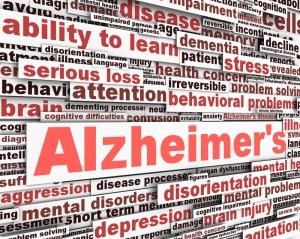A new study could have a significant impact on the future of NFL concussion litigation.
The study, conducted by the National Institute for Occupational Safety and Health examined death certificates of former NFL players. NIOSH, a branch of the Centers for Disease Control, found former NFL players were three times more likely than the ordinary male citizen to die from a brain related disease. 
About the Study
The study focused on 3,400 NFL players who played at least five seasons in the NFL between 1959 and 1988. Of the 3,400 total players, the study examined the death records of 334 of these players whose death occurred by the end of 2007, the cutoff period for the study. Researchers then analyzed the causes of death for the former NFL players to the causes of death in ordinary American males.
The study, published in the September 5 edition of the journal Neurology, classified brain diseases into one three types including Alzheimer’s, Parkinson’s and Lou Gehrig’s disease.
The Findings
Of the 334 death certificates examined, the study found 10 cases in which the cause of death was due to one of three brain diseases. Researchers conducting the study found the death rate from the three brain diseases to be three times higher in the former NFL players than that of the general male population.
Just as most learn in school, correlation does not imply causation; this fact holds true for the study. Researchers state that the study could not prove the brain diseases resulted from football-related concussions. In addition, researchers state the results might not apply to pro or amateur players who have played less than five years.
What about CTE?
The study also left out a condition known as CTE, or chronic traumatic encephalopathy. CTE has been the focus of a lot of attention in regards to a possible link to brain problems in football players.
CTE was not included on the list of the three brain diseases because according to lead researcher, Everett Lehman, it is not among the standard list of conditions researchers used for classifying deaths. Researchers did note that some of the players in the study, whose death certificate listed a brain disease as the cause of death, might have been misdiagnosed and actually resulted from CTE.
Dr. Robert Cantu, co-director of a center that studies CTE at Boston University, did not participate in the study, but did state the results are “not at all surprising”. He agreed with researchers stating that some of the deaths could have actually be misdiagnosed CTE. Dr. Cantu states a CTE diagnosis requires a special chemical test of the brain after death.
What does this mean for the NFL?
How specifically this study will affect the NFL and NFL concussion litigation is unknown. If the NFL’s action on September 5, the date of the study publication, is any indication then it seems the league may be fearful of the study’s impact.
The NFL announced September 5 that they are donating $30 million for medical research to the Foundation for the National Institutes of Health, the fundraising branch of the NIH. NFL Commissioner, Roger Goodell, states he hopes the money will benefit research for athletes. He hopes the research will focus on potential areas including CTE, concussion management, and treatment for disorders from later in life like Alzheimer’s disease.
Is the NFL’s donation to NIH truly out of goodwill or does it have ulterior motive? It seems the NFL donation may have been an attempt to save face.
NFL Concussion Litigation Lawyer
The Strom Law Firm represents former NFL players who are suffering devastating effects resulting from concussions they received while playing for the NFL. We believe the NFL did not take preventative action in regards to their players’ safety and failed to inform their players of the true risks associated with concussions and traumatic brain injuries. The Strom Law Firm represents traumatic brain injury victims and their families. If you or a loved one experienced a traumatic brain injury, call us today to see how we can serve you. 803.252.4800.

